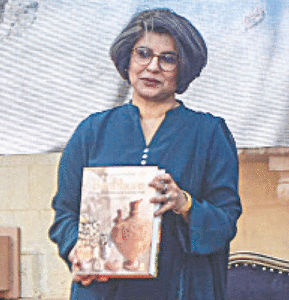KARACHI: Caretaker Health Minister Dr Saad Niaz on Tuesday suggested establishment of a rabies prevention committee at the provincial level to serve as an oversight body to implement WHO’s recommendations at new sites being developed for management and treatment of dog-bite patients.
He was speaking as the chief guest at an event organised at the Indus Hospital in connection with World Rabies Day.
“A rabies prevention committee needs to be formed to serve as an oversight body for the implementation of recommendations at new sites, surveillance, and data collection,” he suggested, while appreciating Indus Hospital’s humane public service, especially for rabies control, and offering his government’s support in every way possible.
He hoped that the standard the Indus Hospital had set at its rabies prevention centre would be met at other emerging sites.
“I expect that the rabies clinics would have soap and water for wound washing, maintain cleanliness, have proper working hours, and have adequate supplies of vaccines and RIG,” he said.
Speaking on the occasion, health experts said that a majority of healthcare professionals in Pakistan were unaware of the correct method of treating dog-bite victims; though there has been major advancement in methods of post-exposure treatment. Highlighting the severity of rabies and the factors hampering proper treatment of its patients, one of the main reasons behind high mortality, the experts shared that it’s the most neglected tropical disease not only in Pakistan but all over low- and middle-income countries.
“If the bite is from an infected dog and remains untreated, rabies will develop and will definitely be fatal. A rabid dog may transmit the virus to humans and other animals, including livestock,” Dr Naseem Salahuddin, head of the department of infectious disease at IHHN, told the audience.
According to her, healthcare providers usually blame their institutions for not providing enough vaccines and Rabies immunoglobulin (RIG). “Even if these are present, they either waste precious vaccines or inject inappropriately,” she regretted.
Dr Salahuddin explained how IHHN, over decades, has served the people of Karachi with a modern, WHO-approved technique and course of post-exposure prophylaxis (PEP) to over 12,000 patients this year alone and saved them from the dreaded disease.
“In January 2018, we started the Rabies Free Pakistan programme to vaccinate and surgically sterilise male and female dogs in the city. The pilot project ended in 2022 when the local government of Sindh took over to continue it on its own,” she said.
Aftab Gohar and Indus Hospital president Dr Abdul Bari Khan also spoke.
Published in Dawn, September 27th, 2023












































Dear visitor, the comments section is undergoing an overhaul and will return soon.